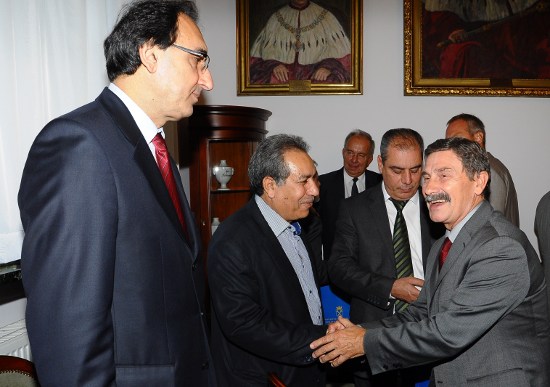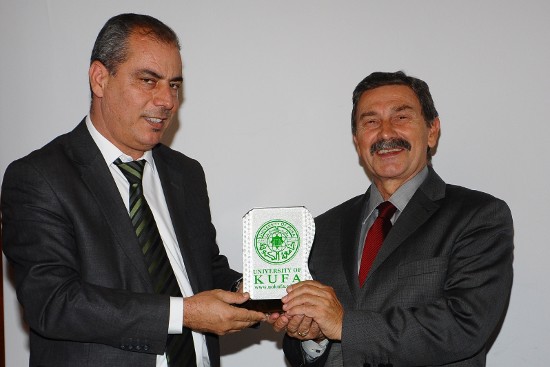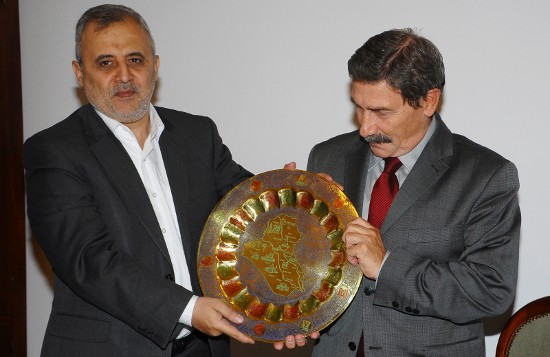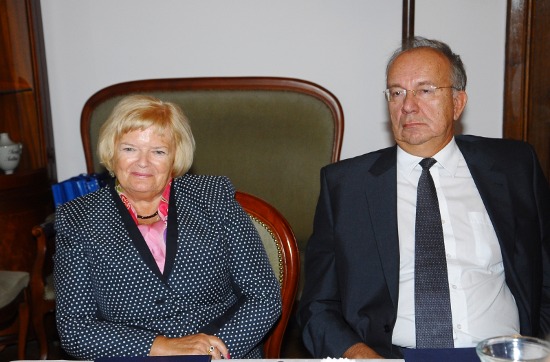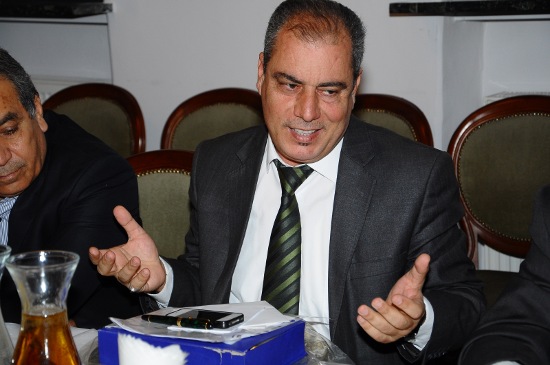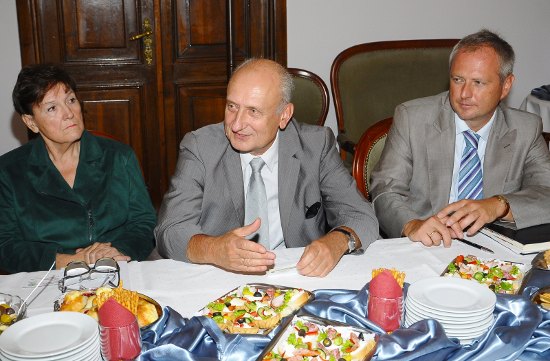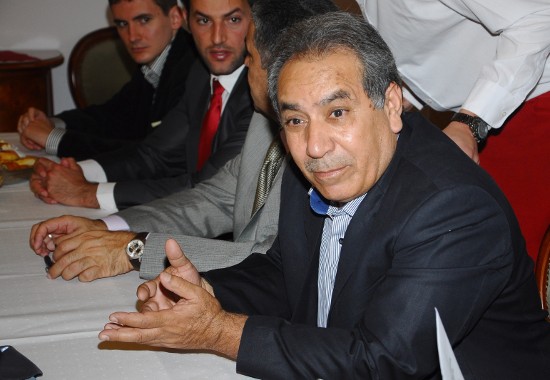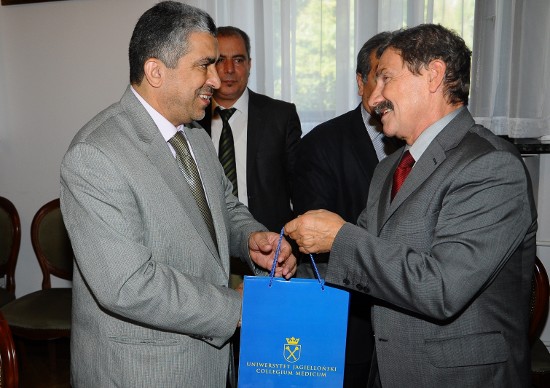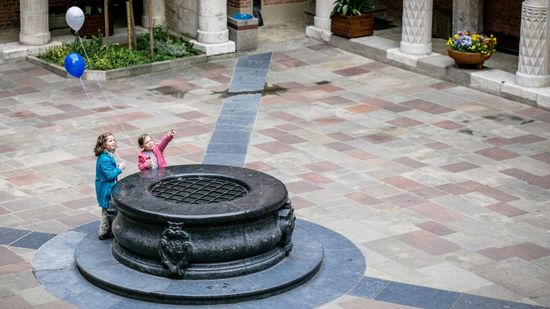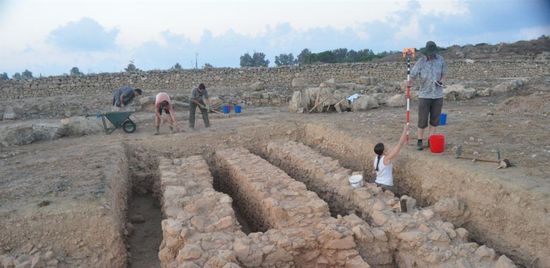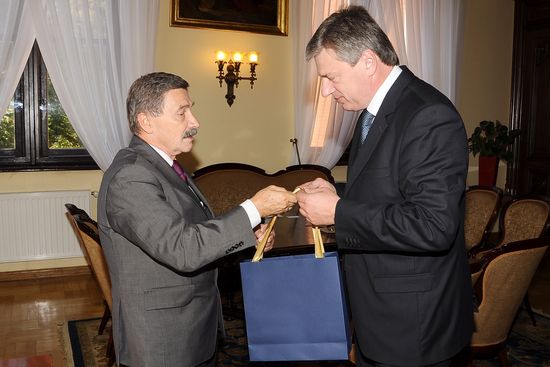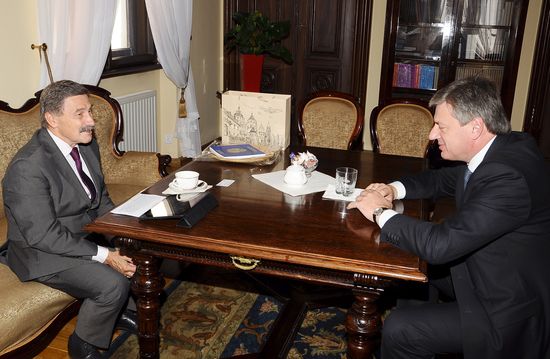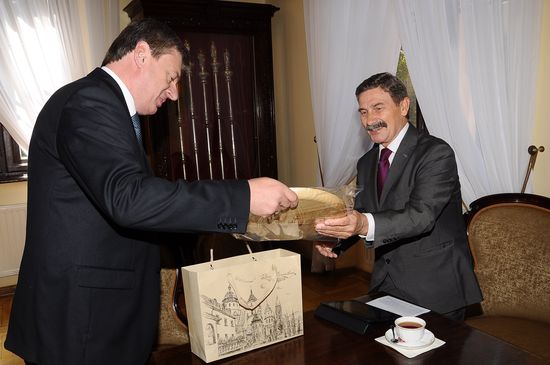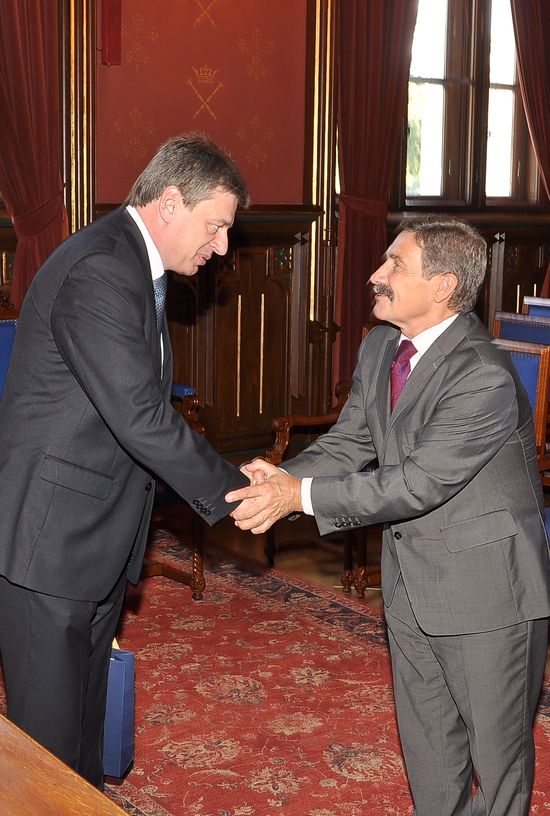On 12 September 2014 at 5.00 p.m., the ceremony of conferring an honorary doctorate of the University of Silesia and the Jagiellonian University upon Tomas Tranströmer, a Swedish poet, took place in Stockholm. The degree recipient is a master wordsmith, a virtuoso of metaphysical reflection, poetic conciseness and pensiveness, an examiner of the condition of the man of our times, and a creator of poems of imperishable value. He received the Nobel Prize in Literature in 2011.
Tomas Tranströmer was awarded with the title of Doctor Honoris Causa by the University of Silesia and the Jagiellonian University at the same time. This is an unprecedented event in the history of both universities. Its importance increases even more when we realise that we gather around an artist who pulverises us with the strength of his poetry – seemingly simple, easily understandable, though at the same time contemplative and metaphysical, lapidary, restrained in the use of metaphors, filled with melancholic Scandinavian landscapes, full of paradoxes and contradictions, thanks to which – as it was put in the Nobel Prize motivation – "through his condensed, translucent images, he gives us fresh access to reality."
"The title of Doctor Honoris Causa is the greatest award that a university has to offer. It is conferred on persons of great stature and international renown to honour their contribution to the development of science, art and culture," said Prof. Wojciech Nowak, Rector of the Jagiellonian University.
"This exceptional title is awarded to persons who have distinguished themselves with unique characteristics and brilliant minds; those whose unwavering pursuit of truth is recognised by the whole academic community, yet at the same time is difficult to describe and assess because of its innovativeness," stressed Prof. Wiesław Banyś, Rector of the University of Silesia.
The ceremony of conferment of honorary doctorate upon Tomas Tranströmer
12 September 2014 (Friday), 5.00 p.m.
Villa Nedre Manilla, Djurgårdsvägen 230, 115 21 Stockholm, Sweden
Members of the delegation
Jagiellonian University
Prof. Wojciech Nowak – Rector
Dr hab. Elżbieta Górska, prof. UJ – Dean of the Faculty of Philology
Dr hab. Magdalena Wasilewska-Chmura – laudatory speaker
Ms. Paulina Gajda – a representative of the Department of Communications and Marketing
University of Silesia
Prof. Wiesław Banyś – Rector
Dr hab. Ryszard Koziołek, prof. UŚ – Vice-Rector for Education and Student Affairs
Prof. Józef Olejniczak – laudatory speaker
Prof. Rafał Molencki – Dean of the Faculty of Philology
Prof. Marian Kisiel – Vice-Dean of the Faculty of Philology
Prof. Grażyna Szewczyk – reviewer
Ms. Elżbieta Sonnenfeld
"The hero of today's ceremony wrote that ‘You can see beauty only from the side, hastily' (Under pressure). Therefore, it is not granted –also a poet must seek it and discover it. He discovers it for us and – 36 – combines according to John Keats's formula: ‘Beauty is truth, truth beauty!' In fact, we pursue the same path. We, scholars, are always a few steps behind poets, because scientific truths sometimes depreciate, whereas poetic truth is resistant to erosion. Therefore, universities need poets as they intuitively find the easiest path to and the most accurate formula for the truth and beauty. Let it be then a signpost for us and therefore, Dear Tomas, we are grateful and honoured that you accepted the invitation to the scholarly community of the Jagiellonian University." – a quote from the laudatory speech written by Magdalena Wasilewska-Chmura from the Jagiellonian University, translated by Magdalena Praczyńska-Janik.
